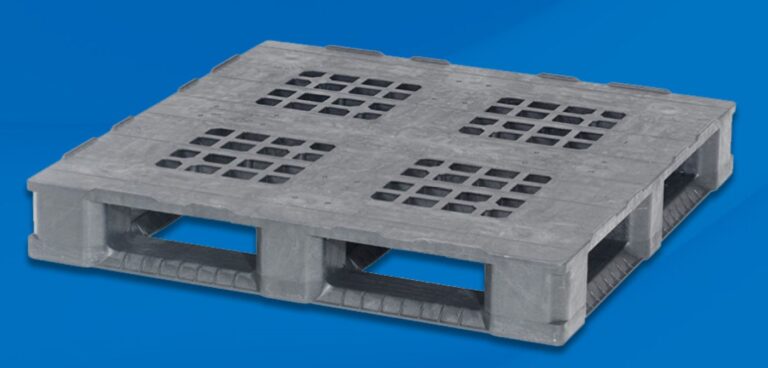Just days after the one-year anniversary of the introduction of the Plastic Packaging Tax (PPT), the Managing Director of UK-based plastic pallet and pallet box supplier GoPlasticPallets.com has called on HMRC to reform the tax.
The company recently submitted a Freedom of Information (FOI) request which revealed that ‘only 3,426 businesses (17.1%) of HMRC’s forecasted 20,000 manufacturers and importers of plastic packaging signed up for PPT between its introduction on 1 April 2022 and 16 February 2023’.
PPT applies to plastic packaging manufactured in, or imported into the UK, that does not contain at least 30% recycled plastic. One reason given for the low registration rate is ‘a lack of clarity surrounding the qualifying criteria’ for the tax.
The guidance given by HMRC sets out that companies must register for PPT if they ‘expect to import into the UK or manufacture in the UK 10 tonnes or more of finished plastic packaging components in the next 30 days’ or ‘have imported into the UK or manufactured in the UK 10 tonnes or more of finished plastic packaging components in the last 12 months’.
Tax receipts data provided in response to GoPlasticPallets.com’s FOI request confirmed that from July 2022 to February 2023, HMRC collected over £200 million from PPT. This is over the initial estimate of £200 million to be collected for the year (this was later amended in November 2022 to £300 million), in spite of the lower-than-expected registration rate.
GoPlasticPallets.com’s concern is that the company claims to have paid £146,667 so far since PPT was introduced and expects to have paid £200,000 in total for the year; it believes that it is ‘bearing a disproportionate financial burden’ despite what it considers ‘environmentally-friendly practices and products’. GoPlasticPallets.com says that the majority of its products are made from recycled plastic but a limited number are made from virgin plastic, and are therefore subject to the tax.
Jim Hardisty, Managing Director of GoPlasticPallets.com, said: “I do believe HMRC started off with good intentions by looking to drive down the use of single-use and limited-use plastics and packaging, such as plastic water bottles, food packaging, shrink wrap, etc.
“However, as more people asked questions due to a lack of clarity, it became apparent there was no logic or consistency around qualifying criteria. It was at this point that we were informed our virgin products would be subject to the tax. It’s baffling.
“The plastic pallets we supply to our customers are robust, durable, and will often last 10 or 15 years within the supply chain – they should not be considered ‘packaging’. In fact, they offer an eco-friendly alternative to traditional wooden pallets, which are often discarded after a few supply chain cycles and contribute to deforestation.
“We have long been a sustainability-focused business, through our products, our industry-first recycling scheme, and the work we do with charities and environmental organisations. It’s bizarre that we are being penalised for something we are fighting against – the prevalence of single-use plastic.”
According to HMRC, ‘the aim of the tax is to provide a clear economic incentive for businesses to use recycled plastic in the manufacture of plastic packaging, which will create greater demand for this material’. It hopes that ‘in turn this will stimulate increased levels of recycling and collection of plastic waste, diverting it away from landfill or incineration’.







